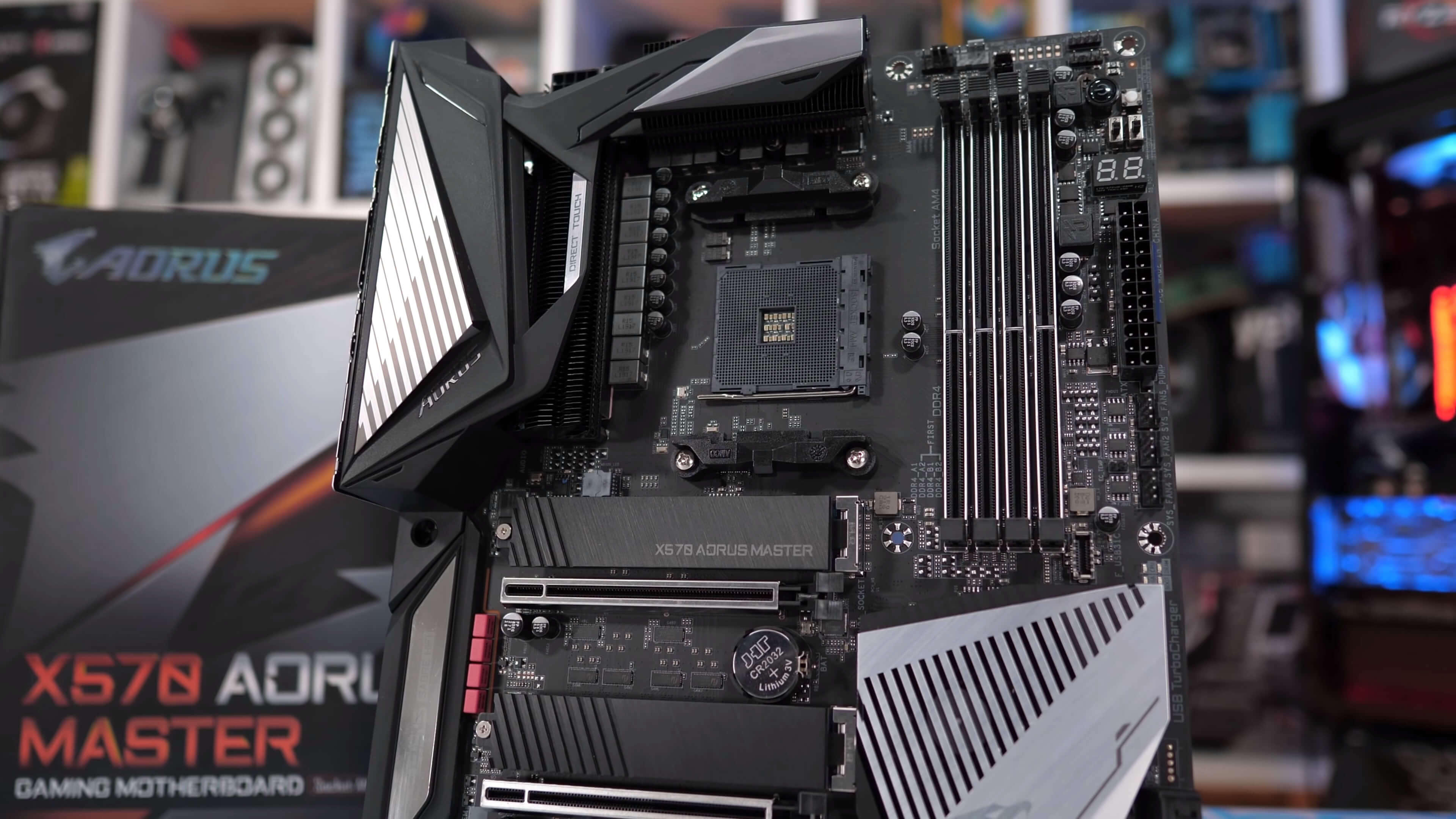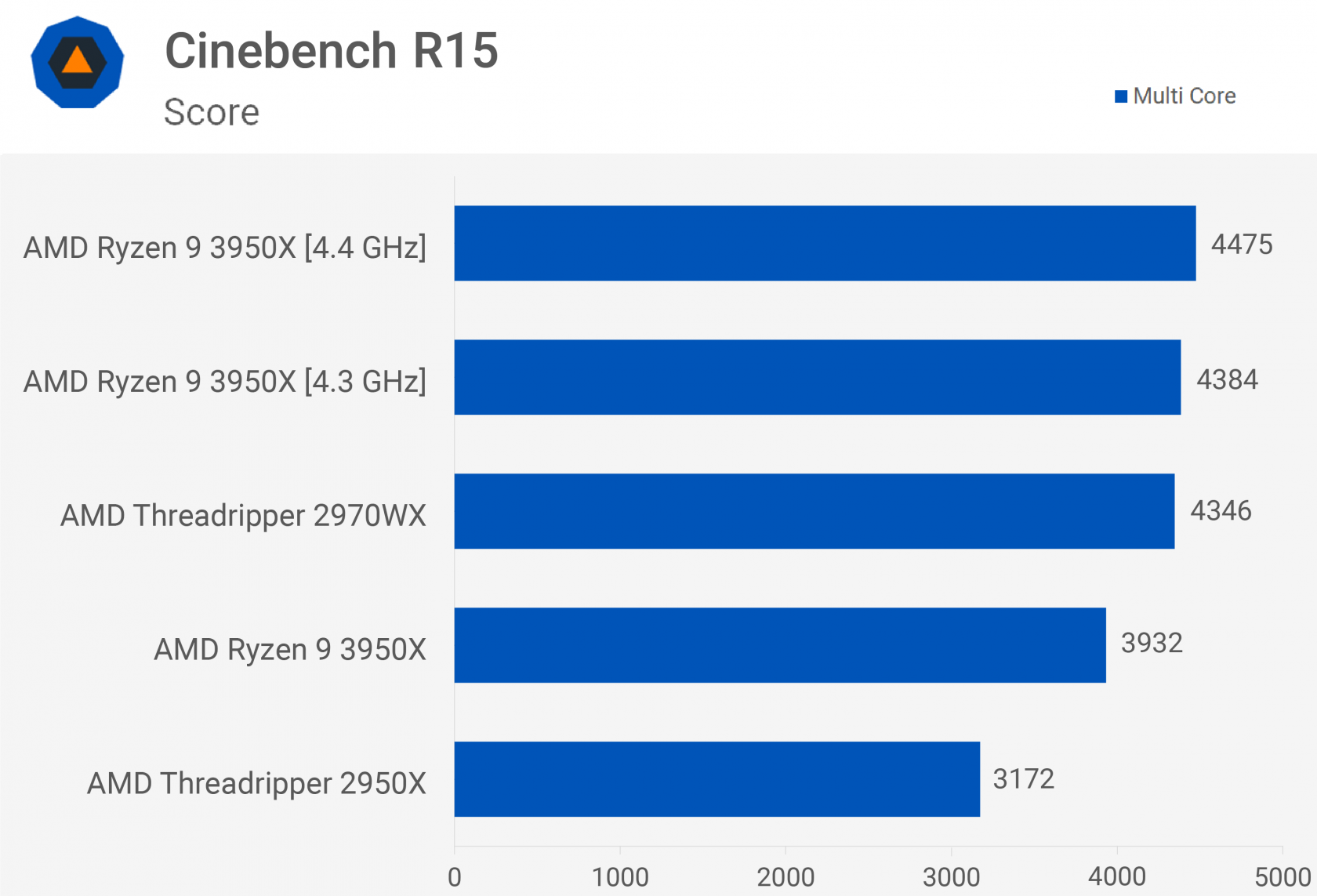Why it matters: From six cores through twelve, Ryzen’s third iteration kills it in multicore benchmarks, and we expected nothing less from the upcoming 16-core 3950X. But according to an accidentally published overclocking manual from Gigabyte, performance is even better than anticipated and an overclocked 3950X can surpass all of Intel’s HEDT processors and is beaten only by AMD’s 32-core Threadripper.

Gigabyte’s engineers were able to consistently overclock the Ryzen 9 3950X to 4.3 GHz on their X570 Aorus Master motherboard (pictured above) using EKWB’s custom waterloop kit containing a 360mm radiator. The chip they used for benchmarking was running at 1.416 V with an x43 multiplier applied to a 99.98 MHz bus. Under a Prime95 workload, Die 1 had an average temperature of 97 C and a max of 101 C, and Die 2 averaged 93 C and spiked to 97 C. Not for the faint of heart, but not unmanageable.
At 1.452 V they were able to get one specific chip to run at 4.4 GHz, but they suggest that 4.3 GHz is the general limit for stability. In TechSpot’s own testing, both the 3900X and 3700X maxed out at 4.3 GHz on a 360mm AIO.
Threadripper results are from TechSpot's reviews, Ryzen results courtesy of Gigabyte.

And finally, to the results. The 3950X simply obliterates AMD’s current 16-core monster, the Threadripper 2950X, scoring 24% higher. It falls a mere 10% behind the 24-core 2970WX. Overclocked to 4.3 GHz results are even more impressive as it can improve its score by 11%, pushing 1% past the 2790WX.
According to online results for the 18-core i9-9980XE, that chip can only achieve a ~3700 score at stock and ~4200 overclocked, both of which are about 200 points behind the 3950X when similarly configured.
Surely, the soon to be released i9-10980XE might outdo the 3950X, but at $230 more than the 3950X’s $749, Ryzen will probably be the value winner. We’ll know soon when both the 3950X and Intel’s Cascade Lake-X launch in November.
https://www.techspot.com/news/82214-overclocked-ryzen-9-3950x-outperforms-24-core-2970wx.html